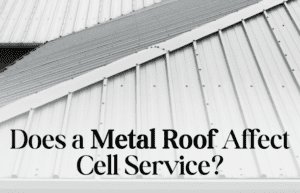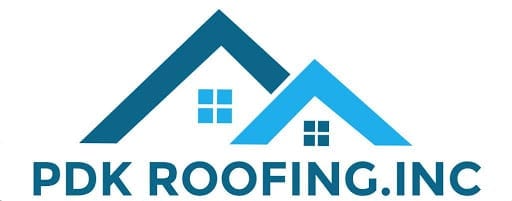
Introduction
Does a metal roof affect cell service? In today’s modern age, where staying connected is vital, homeowners often have concerns about how their roofing materials can impact cell signal strength. Metal roofs have been subject to speculation, with some believing they may obstruct cell signals and result in poor reception.
At PDK Roofing, we understand the significance of cell service reliability. In this blog, we aim to explore the truth behind whether a metal roof affects cell service and provide valuable insights to help homeowners make informed decisions.
Myth or Reality: Metal Roofs and Cell Service
Myth: Metal roofs block cell signals, leading to poor reception and dropped calls.
Reality: While it is true that certain building materials can impede cell signal transmission, the impact of a metal roof on cell service is often exaggerated. When installed correctly, a metal roof should not completely block cell signals or create dead zones within your home. Factors such as the type of metal used, roof design, and the strength of the cell signal in your area play significant roles in determining signal interference.
Understanding How Cell Signals Work
To comprehend the relationship between metal roofs and cell service, it is crucial to understand how cell signals operate. Mobile phones communicate with cellular towers using radiofrequency (RF) signals. These signals can pass through various building materials to varying degrees. Some materials may attenuate or weaken the signal as it passes through, resulting in potential signal loss within the building.
Factors Affecting Signal Interference
-
- Metal Type and Thickness: Different metals exhibit varying levels of conductivity, which can impact signal penetration. Thicker metal roofs may cause more signal attenuation than thinner ones.
- Roof Design and Orientation: The shape and design of your roof can also influence signal interference. Steeper roofs may have a lower impact than flatter roofs, and the orientation of your home concerning the nearest cell tower can affect signal strength.
- External Interference: Beyond roofing materials, external factors like nearby structures, trees, or geographical obstacles can influence overall cell signal quality in your area.
Mitigating Signal Interference
Fortunately, there are various solutions available to ensure minimal interference with cell service when installing a metal roof:
-
-
-
- Antenna Placement: Consider installing an external antenna on the roof to enhance signal reception. Proper placement of the antenna can help overcome any potential interference.
- Wi-Fi Calling: Many modern smartphones support Wi-Fi calling, allowing calls to be routed over Wi-Fi networks instead of relying solely on cellular signals.
- Cellular Signal Boosters: Investing in a reputable cellular signal booster can amplify weak signals, improving overall reception inside your home.
-
-
Consulting with Professionals
At PDK Roofing, we prioritize our customer’s satisfaction and understand the importance of a seamless cell service experience. Suppose you are considering installing a metal roof or already have one and are experiencing issues with cell service. In that case, our roofing experts team is ready to assist you. We can provide guidance on roofing materials that have minimal impact on cell signals while still offering durability and longevity.
Conclusion
While metal roofs can have some impact on cell service due to their conductive properties, the effect is less drastic than commonly believed. With proper installation and signal-enhancing technologies, homeowners can enjoy the benefits of a metal roof without compromising their cell service.
Remember that a well-maintained metal roof from PDK Roofing can provide lasting protection and aesthetic appeal while ensuring satisfactory cell service for your modern connectivity needs. Stay connected confidently, and let us help you make the right roofing choices for your home.





